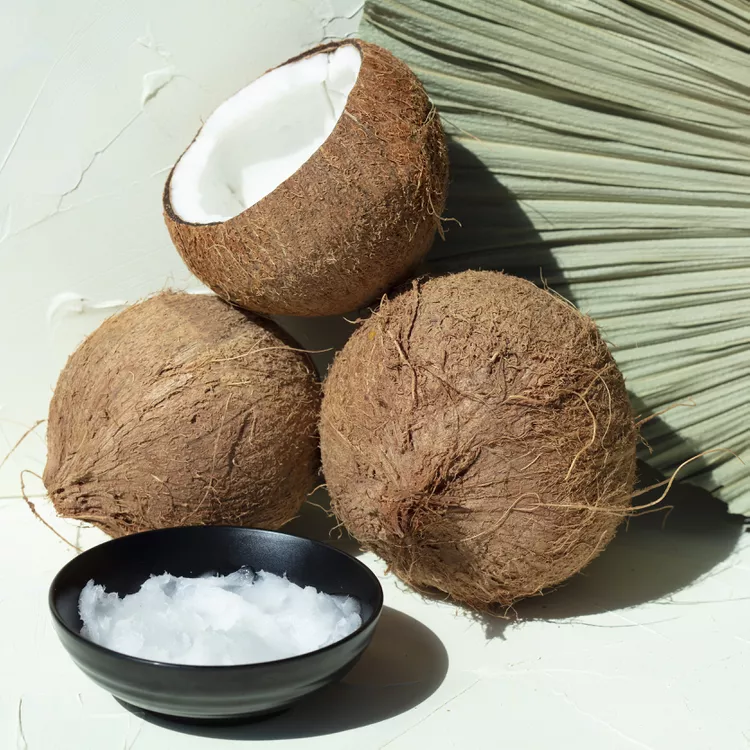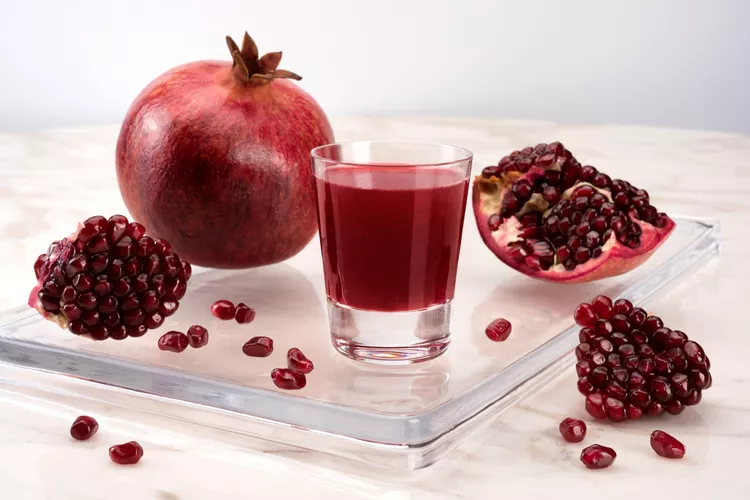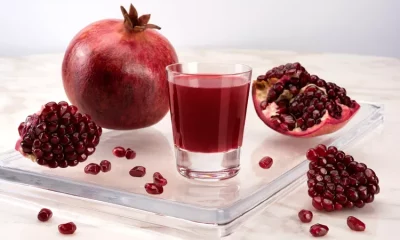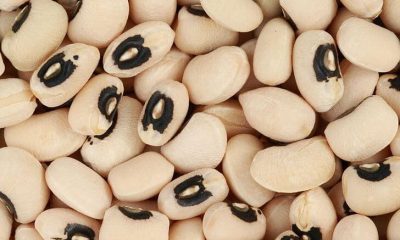Health
15 Benefits of coconut oil for hair

Discover the 15 benefits of coconut oil for hair.
Coconut oil is very popular and often preferred as a hair oil throughout the world. And it is a very popular ancient elixir in Asia. We tell you why.
Many people who live in the coastal areas of the world, more specifically in areas where coconuts grow in abundance, know that pleasant coconut oil is their only hair oil. These are the areas like the Indian subcontinent, Sri Lanka, Indonesia, Malaysia, Burma, the Philippines and parts of the Caribbean.
Coconut oil is rich in carbohydrates, vitamins, and minerals that are good for the human body. However, coconut oil is not limited to hair; It is used in the preparation of cosmetic creams and soaps, and in Asian countries, it is also used to prepare various types of food and salads.
Coconut oil has been used as hair oil for thousands of years and has shown remarkable results. Certain components of coconut oil keep hair strong, nourished, and protected from the effects of premature aging, such as baldness and hair loss. Let’s take a look at some of those hair benefits, and what components of coconut oil are responsible.
Benefits of coconut oil for hair
1. Hair loss:
Coconut oil has been used since ancient times in India for hair grooming. Various remedies using herbs and coconut oil were prepared to prevent hair loss. One such remedy can be prepared in modern times by boiling Salvia leaves in coconut oil.
This mixture can be applied to the scalp for the improvement of healthy hair, and its use will also prevent hair loss. Applying a mixture of coconut oil and lemon water can also provide relief from hair loss, as does the mixture of coconut oil and gooseberries. They boil gooseberries in coconut oil and then apply it to their hair.
2. Hair damage:
Using coconut oil on hair helps reduce protein loss in both damaged and intact hair. Rich in lauric acid, coconut oil has a high affinity for hair protein and easily penetrates the hair shaft due to its low molecular weight. It can be used for pre-wash or post-wash hair grooming.
3. Cooling Properties:
Applying coconut oil to the head and scalp also has a cooling effect. It can cool and soothe people with hotheads, or those who suffer from severe scalp sweating.
4. Moisture retention:
Coconut oil can retain moisture, as it does not break down or evaporate easily, it remains very stable. It does not let moisture escape, thus keeping hair moist and soft, preventing hair breakage.
5. Hair Conditioning:
Coconut oil is the best hair conditioner than any synthetic available on the market. Using warm coconut oil helps keep hair shiny and smooth. Apply the warm oil at night and wash your hair the next morning. This can be repeated from time to time for healthy, strong, and conditioned hair.
6. Anti-dandruff:
Various fatty acids available in coconut oil serve as very good anti-dandruff agents and are much better than any anti-dandruff shampoo. Regular application of coconut oil can help you get rid of dandruff for good.
Coconut oil mixed with warm water and castor oil can also be effective in treating dandruff. Massage the scalp and hair with this mixture for best results.
Another home remedy for dandruff can be prepared by mixing coconut oil with sesame oil. Apply this mixture for about 30 minutes and then wash your hair.
7. Styling:
Coconut oil can be a good styling oil for hair, as it melts and then condenses when cooled. Therefore, when you apply it to your hair, it is diluted and spread evenly due to the heat of the scalp. Soon after, as the hair comes into contact with air, the oil in the hair condenses, thus working as a hair cream or gel.
8. Head Lice Protection :
Head lice are a very common hair pest and can cause embarrassment for anyone. Also, they tend to come back again and again.
There are many chemical products for the treatment of lice, but unfortunately, they can also damage the scalp and hair due to their strong chemical components.
Combing through wet hair with a fine comb is a good remedy for getting rid of lice, but it can also damage wet hair. However, if one covers the wet hair with coconut oil, it becomes much easier to comb and subsequently remove the lice.
9. Hair care for dry hair:
For people with dry hair and who have dry and thin hair, taking care of their hair is a big concern. However, using strong hair care products for cleansing, toning and conditioning can lead to a dry and flaky scalp. Coconut oil can be effective in caring for this type of dry hair.
10. Hair toning:
Coconut oil also helps tone hair, especially dry hair. Apply a warm mixture of coconut oil and lavender essential oil to your scalp at night, then wash and rinse your hair the next morning. You can repeat this as often as you like until you see the desired results.
11. Hair Conditioning:
Hair conditioner can be easily prepared at home using coconut oil. Not only is it effective; but It also has no side effects. Mix a little henna with coconut oil and hot milk to form a paste. Apply this to your hair for 20 minutes and then rinse your hair properly. This hair conditioner is very effective, especially for dry hair.
12. Boils:
Some people experience the condition of boils on the scalp, especially during the winter. This can also happen if it is exposed to heat or sun for a long duration.
It is important to keep the hair and scalp clean and occasional hair massage with a mixture of coconut oil and olive oil can provide relief from the uncomfortable and unsightly problems of boils. However, if the problem persists, you should contact your health care specialist.
13. Split Ends:
If you have a lot of split ends in your hair, it is generally recommended to cut them, but in case this problem appears in a small number of your hair strands, then you could use simple home remedies to solve the problem.
Massage the hair with a mixture of coconut oil and almond oil for a few minutes; This will help minimize split ends and bring them back together.
14. Healthy Hair:
With various benefits such as hair nourishment, anti-aging properties, moisture retention, and vitamin E supplementation, coconut oil in shampoo is one of the best things that helps your hair.
15. The Oily Factor:
Detergent or soap-based shampoos leave your hair dry, rough, hard, and bleached. Therefore you will sometimes find that you cannot gently comb your hair after you have washed it.
The oil in the shampoo counteracts this effect. In coconut oil, that component comes from natural saturated fats and keeps hair smooth and shiny.
How to apply coconut oil to hair
Before fully entering into the different ways of using coconut oil in hair care, it is important to know the objective that we intend to achieve with its use. In other words, we will not apply it the same if we want to combat dandruff or, on the contrary, if we are looking for a hydrated and nourished mane.
Moisturize the hair
Take two tablespoons of coconut oil and spread this amount through your hair and scalp.
Cover the hair with a shower cap or something similar and let it act for an hour.
Rinse the hair with water, then comb the hair.
Curb frizz
Apply a tablespoon of coconut oil to your hair. On this occasion, it is not necessary to rinse the hair with water.
Fight dandruff
Mix two tablespoons of coconut oil with sesame or tea tree oil, whichever you prefer.
When the combination is homogeneous, apply it to the hair.
Let the mixture act for 30 minutes and rinse it off.
And you, do you know how you want your hair to look? Take a few minutes to look at your hair and try the star ingredient!
Related Searches….
Light oils for hair
How to use coconut oil for hair growth and thickness
What to mix with coconut oil for hair growth
How to use coconut oil to stop hair fall
can coconut oil regrow hairline?
What kind of coconut oil for hair
Can I use coconut oil on my hair everyday
Coconut oil for hair overnight
Coconut oil ruined my hair
Health
Benefits of pomegranate juice

Discover the benefits of pomegranate juice.
Frequent consumption of pomegranate juice can help us prevent multiple ailments and promote better blood circulation.
Drinking natural juices is good for our health. Surely you have read or heard this statement often. Among them, a very beneficial one is pomegranate juice.
Although all fruits are nutritious, each one has its properties. Here we will tell you about the benefits of pomegranate juice.
The tree that provides us with this delicious fruit is the pomegranate. It blooms between April and June and can survive up to 1,100 meters high.
It is native to Asia but today it is also planted near the Mediterranean Sea, South America, Australia, and South Africa.
Traces of the use of the pomegranate by the peoples of desert areas have been found since it was preserved for quite some time.
For example, in Greece, it is said that the first tree was planted by Aphrodite. In Java the fruit is used in pregnancy rituals and in China it is offered to newlyweds to guarantee great offspring.
1. Antioxidants
Pomegranates have been consumed throughout history for their medical benefits. Today, the juice of this fruit is a popular part of healthy diets.
Pomegranate seeds get their bright red color from polyphenols. These chemicals are powerful antioxidants.
Pomegranate juice contains higher levels of antioxidants than most other fruit juices. It also has three times more antioxidants than red wine and green tea. The antioxidants in pomegranate juice can help scavenge free radicals, protect cells from damage and reduce inflammation.
2. Vitamin C
The juice of a single pomegranate has more than 40% of your daily vitamin C requirement. Vitamin C can break down when pasteurized, so choose homemade or fresh pomegranate juice to get the most nutrients.
3. Cancer prevention
Pomegranate juice caused a sensation when researchers found that it could help stop the growth of prostate cancer cells. Despite multiple studies on the effects of juice on prostate cancer, the results are still preliminary.
Although there have been no long-term human studies proving that pomegranate juice prevents cancer or reduces risk, adding it to your diet doesn’t hurt. There have been encouraging results in the studies so far, and larger studies are now underway.
4. Protection against Alzheimer’s disease
The antioxidants in the juice and their high concentration are believed to stop the progression of Alzheimer’s disease and protect memory.
5. Digestion
Pomegranate juice can reduce inflammation in the intestines and improve digestion. It may be of benefit to people with Crohn’s disease, ulcerative colitis, and other inflammatory bowel diseases.
Although there are conflicting beliefs and research about whether pomegranate juice helps or worsens diarrhea, most doctors recommend avoiding it until you feel better and your symptoms have resolved.
6. Anti-inflammatory
Pomegranate juice is a powerful anti-inflammatory due to its high concentration of antioxidants. It can help reduce inflammation throughout the body and prevent oxidative stress and damage.
7. Arthritis
The flavonols in pomegranate juice may help block inflammation that contributes to osteoarthritis and cartilage damage. Possible effects on osteoporosis, rheumatoid arthritis, and other types of arthritis and joint inflammation are currently being studied.
8. Heart disease
Pomegranate juice might be the most heart-healthy juice. It protects the heart and arteries.
Small studies have shown that the juice improves blood flow and prevents arteries from becoming stiff and thin. It can also reduce the growth of plaque and cholesterol buildup in the arteries. However, pomegranate may react negatively with blood pressure and cholesterol medications such as statins.
Be sure to talk to your doctor before indulging in juice or taking a pomegranate extract supplement.
9. Blood pressure
Drinking pomegranate juice daily can also help lower systolic blood pressure. A comprehensive review of randomized controlled trials indicated that including pomegranate juice every day would be beneficial for heart health.
10. Antiviral
Between vitamin C and other nutrients that boost your immune system like vitamin E, pomegranate juice can ward off illness and fight infections. Pomegranates have also been shown to be antibacterial and antiviral in laboratory tests. Its effects on common infections and viruses are being studied.
11. Rich in vitamins
In addition to vitamin C and vitamin E, pomegranate juice is a good source of folate, potassium, and vitamin K.
Whether you decide to add pomegranate to your daily diet or just drink it occasionally, check the label to make sure it’s 100% pure pomegranate juice with no added sugar. Or, prepare it fresh.
12. Memory
According to a recent study, drinking 8 ounces of pomegranate juice daily can improve learning and memory.
13. Sexual performance and fertility
The concentration of antioxidants and the ability to affect oxidative stress make pomegranate juice a potential fertility aid. Oxidative stress has been shown to cause sperm dysfunction and decrease fertility in women.
The juice has also been shown to help reduce oxidative stress in the placenta. However, researchers do not yet know the exact benefits it may cause. Drinking pomegranate juice can also increase testosterone levels in men and women, one of the main hormones behind the sex drive.
14. Endurance and sports performance
Set aside the cherry pie and beetroot juice. Pomegranate juice may be the new sports performance booster. The juice can help reduce pain and improve stamina recovery. It also decreases oxidative damage caused by exercise.
15. Diabetes
Pomegranate was traditionally used as a remedy for diabetes in the Middle East and India. Although much is still unknown about the effects of pomegranate on diabetes, it may help lower insulin resistance and lower blood sugar.
Conclusion
Green juice isn’t the only healthy option out there. Adding pomegranate juice to your diet can reduce your risk of chronic disease and inflammation. It’s also a wonderful way to get the nutrients from the fruit and boost antioxidants.
There are several brands of pomegranate juice for purchase online. It is a good idea to compare the different products to choose the one with the greatest benefit.
It’s best to check with your doctor before drinking pomegranate juice every day to make sure it won’t interfere with any of your medications. Also, diabetics should check their blood sugar daily if they choose pomegranate juice over the whole pomegranate to ensure blood sugar remains at its optimal level.
Health
60 tips for healthy weight

Discover the 60 tips for healthy weight loss.
Excess weight can be considered not as an essentially aesthetic problem, but as a personal health problem.
In addition to the damage caused by excess body fat, the overweight individual is also frequently exposed to other health problems, since overweight and obesity are associated with an unhealthy diet and lifestyle sedentary.
As if that were not enough, some people, influenced by unrealistic beauty standards, end up looking for shortcuts to lose weight, resorting to fad diets, which are often harmful to health, or the use of chemical substances, often without the help of an experienced professional.
The point of this article is not to present miracle weight loss formulas or to teach secret tips that will make you lose weight quickly and effortlessly. That does not exist.
The objective of this text is to show that the implementation of small changes in eating habits and lifestyle can have a great impact in the medium and long term on the control of ideal body weight.
60 tricks to maintain a healthy weight
The weight loss process can be summed up as the simple difference between the number of calories you consume per day minus the number of calories your metabolism burns daily.
That is, if you eat more calories than you burn over several days, you will gain weight.
On the other hand, if your daily calorie intake is less than the number of calories your body burns, you will lose weight.
If the intake and burning of calories are the same, your weight will remain stable over the weeks.
Therefore, we can share our tips in 2 groups:
• Tips for consuming fewer calories throughout the day.
• Tips to increase your calorie burn throughout the day.
Tips to consume fewer calories
1- Avoid the consumption of sodas with sugar. A single can of Coca-Cola has 35 grams of sugar, which offers 139 kcal.
Just as a comparison, 35 grams of sugar is 8 to 10 tablespoons of sugar. Already 139 kcal is the average expenditure of a 40-minute walk.
If you consume more than one can of Coca-Cola a day, simply stopping this consumption will make you lose a good amount of kilos in a few weeks.
Diet sodas may not be a healthy drink, but they are much better than non-diet sodas in terms of sugar and calorie intake.
2- It is not only soft drinks that contain excess sugar. Before buying a drink, look at the amount of sugar and calories in it.
Energy drinks and products for hydration during physical activity, such as Gatorade and Powerade, also have excess sugar.
A bottle of Gatorade, for example, has 30 grams of sugar or about 8 teaspoons of sugar.
3- Do not be fooled by industrial products that are called natural. Many brands of boxed or bottled juices, which claim to be made with 100% fruit, actually add sugar to enhance the flavor.
Just because orange juice is made with real orange does not mean that the manufacturer did not add sugar to its formula.
See the nutritional references on the back. If sugar has been added, avoid, because the fruit itself is a food rich in carbohydrates.
4- At mealtimes, do not fill the plate. Put less food than you think is necessary. At the time of hunger, our ability to estimate the necessary amount of food is compromised, and, many times, we eat more than we need just to avoid leaving the leftovers on the plate.
5- Following the same logic as the previous topic, use smaller plates. A small full plate can pass the feeling that there is the ideal amount of food better than a large empty plate.
6– Do not feel obliged to always finish the plate. If you are satisfied, stop eating even if there is food on the plate.
7- Eat only in one place in the house, for example, in the living room or the kitchen. This can break the habit of eating in certain places in the house outside of mealtimes, such as at the office, in bed, in front of the TV, etc.
8- Create a reward system at the end of the day or week after following a diet with fewer calories.
Rewards can be anything that makes you feel good: go to the mall, get a haircut, manicure, rent a movie, get massages, have sex, etc.
Family collaboration is very important in this system. The reward should not be for weight loss, but better habits. Note: Never use food as a reward.
9- Find out which feelings or activities most frequently activate the trigger of the desire to eat. Try to have control over these situations. If possible it is good to eliminate them.
10- See which are the hypercaloric foods that you consume the most. Stop buying them. If you have it at home, it is almost impossible not to consume. The best way not to eat something with too many calories is not to have easy access to it.
11- Create a journal or blog about your diet. Write daily about successes and failures. Seeks to learn from the mistakes of the previous days.
12- After each bite, take a sip of water. This will make the stomach fill more quickly, reducing the amount of food needed to meet your needs. When the stomach is full, the body releases neurotransmitters responsible for feeling full.
13- Eat slowly, chew your food well and take breaks during your meal. It allows time for the body’s satiety mechanisms to kick in.
14- Vegetables and legumes are not only healthy, as they have few calories. If you eat a good salad during your meal, you will be taking up space in your stomach with food that provides few calories.
Eat the salad before preparing the main dish or reserve at least 50% of the main dish space for vegetables and legumes.
15- It is useless to eat salad if you are going to fill it with sauces, especially those based on mayonnaise and cheese, which are calories.
16- Make a longer interval between food and dessert. See if you really need it or if the candy is simply a habit or a form of reward
17- Brush your teeth as soon as you finish eating; that will make you think twice about choosing dessert.
18- Fight boredom with activities, not with food. Try drinking a glass of water before pinching a treat to see if the urge to eat passes.
19- Olive oil is a healthy type of fat, but it has a lot of calories. If the goal is to lose weight, filling your food with oil is not going to help. Use it in moderation.
20- Avoid frying foods that can be cooked. This drastically reduces the number of calories in food.
21- Avoid breaded foods, parmesan, gratin, sauces rich in mayonnaise, four-cheese sauces, fried foods, or other foods rich in fat, since they tend to be hypercaloric.
22- Roast chicken is a good option, but it should be eaten without the skin.
23- Fish is the best meat option.
24- Eliminate fast foods from your diet. They are nutritionally poor and calorie-dense foods.
25- Sleep at least 7 to 8 hours a day. Our body expends more calories when we are sleeping in deep sleep than when we are just lying down, reading, or watching TV. Those who sleep little have a greater risk of gaining weight.
26- Ask a nutritionist for help to prepare a diet with the ideal amount of calories for you.
27- When shopping, if there is more than one similar product on the supermarket shelf, check the nutritional information for the option with the least calories.
28- Never buy a product without first consulting the nutritional information, especially the number of calories in the food.
Over time, you will learn to identify the best foods for losing weight or keeping it healthy.
29- Understand that food re-education is far superior to any diet. It may take longer to reach your desired weight, but you will surely have an easier time maintaining your desired weight in the long term.
30- When buying dairy products, always try the skim, light, or lean versions. This works for yogurts, milk, cheeses, etc.
31- If you want to eat ice cream, the popsicle is a better option than box ice cream.
32- Whole foods are healthier, have more fiber and fewer calories. The fibers help induce a feeling of fullness.
33- Alcoholic beverages are hypercaloric. The higher the alcohol content, the more calories the drink contains.
34- Avoid buying prepared meals in supermarkets. In addition to being hypercaloric, they tend to have a large amount of salt.
35- You do not have to eliminate any type of food. If you can’t live without pizza on the weekend, calculate how many calories you can consume throughout the day.
You can have a pizza for dinner on Saturday, as long as you have lighter meals throughout the day.
It is important to avoid flavors that are high in fat and calories, such as four kinds of cheese or bacon.
Remember that each slice of pizza can contain between 200 and 300 kcal. The less greasy the pizza is, the more slices you can consume.
36- Losing weight is much easier than maintaining the lost weight. To maintain a healthy weight you need to change your lifestyle and eating habits, otherwise, you will continue to suffer the rebound effect, alternating periods in which you gain weight and lose weight. There is no use dieting if this diet does not teach you to eat better for the rest of your life.
Tips to burn more calories
37- Do not skip breakfast. When we are fasting our metabolism slows down and the body starts to consume not only fat but also muscle mass.
The reduced metabolism ends up making the calories not consumed at breakfast have little effect on weight loss.
It is better to eat a healthy breakfast, with fresh fruit, whole grain bread or cereals, and lean cheese, than to stay on a fast waiting for lunch.
38- Do not do long periods of fasting during the day. Avoid being hungry. It is better to eat 5 or 6 small meals during the day, with a few hours apart, than 2 or 3 large meals spaced apart.
Long intervals between hours slow down the metabolism and increase the release of insulin when eating, two factors that prevent the patient from losing weight.
You cannot consume hypercaloric foods in these meals during the day. Eat a small meal every 4 hours. Leave low-calorie cereal bars or crackers in your pocket or purse.
39- A great mistake of people trying to lose weight is to believe that it is easy to do it only by reducing calorie intake.
Increasing your daily caloric expenditure through exercise greatly facilitates weight loss. In the same way that a correct diet is a matter of habit, practicing exercises is also a matter of habit.
40- Physical exercises burn calories not only at the time of exercise but also for several hours later.
41- A person who exercises regularly burns more calories at rest than a sedentary person. Even sleeping, the metabolism of those who exercise is faster than that of sedentary people.
42- Both aerobic exercises and bodybuilding help you lose weight.
43- A kilo of muscle burns 2.5 times more calories than 1 kg of fat when at rest. When we gain muscle mass, we are increasing our basal calorie intake.
Up to 75% of the calories consumed in a day is done at rest through the basal metabolism of our body, therefore, the more muscle mass we have, the better we can burn calories, even when sleeping or watching TV while lying on the couch.
44- If you do not have cardiovascular or osteoarticular problems, give preference to more intense aerobic exercises to lose many extra calories a day.
A spin class, for example, can make you lose 500 to 800 calories in a single day. This without counting the cardiovascular benefits of having good aerobic endurance.
45- If you have time, try to do 30 minutes of aerobic exercises and then 30 minutes of bodybuilding. The ideal frequency is 4 to 5 times a week.
46- Any degree of exercise is better than none, however, aerobic exercise with less than 20 minutes of duration is not as efficient to burn fat.
In the first minutes, we burn only the sugar reserves. To reach fat stores, it takes at least 20 to 25 minutes of continuous exercise.
47- If you can’t or can’t run, walk. Walking 30 minutes a day is enough.
48- The ideal during physical activity is to keep your heart rate constantly high. Walking and stopping, walking and stopping, as some people do in their day-to-day work, doesn’t work as well as a half-hour uninterrupted walk.
49- If possible, go to work by bicycle. Leave the car at home. Most of the cities in the world have bike lanes built to make the population healthier.
50- If leaving the car at home is impractical, try to park it further away then. Walk a bit to get to work.
51- Replace the elevator with the stairs. This helps you lose weight and still strengthens your lower limbs.
52- Bodybuilding can be done at any age as long as it is accompanied by a qualified professional. The elderly can not only how they should exercise their muscles
53- The older a person, the more important bodybuilding becomes to avoid the reduction in basal caloric expenditure with the natural fall in metabolism.
54- Doing dozens of repetitions of abdominal exercises will not make your belly disappear if you do not lose weight.
You can even create abdominal muscles, but since the fat is more superficial, they will be hidden.
The belly disappears doing aerobic exercises and bodybuilding in general.
55- During bodybuilding, work large muscle groups, such as the chest, back, and thighs, since they are bigger muscles and easier to develop; they will make you lose weight faster.
56- If you cannot stand running or doing bodybuilding, there are several alternatives, such as group sports (soccer, basketball, volleyball), dance, aerobics classes, canoeing, mountaineering, climbing, hiking, yoga, Pilates, etc. An hour of yoga, for example, can help you burn up to 350 kcal.
57- Swimming is a great exercise to lose weight because it is aerobic and stimulates the development of muscles.
58- Exercises in the morning give better results than at the end of the day when you are already tired.
59- Cycling is another excellent option and can be done as a family. It strengthens the muscles and is an aerobic activity.
60- Any physical activity is better than no activity. If you are not used to exercising, start slowly.
Find activities that are not painful. Losing weight should be a goal in the medium and long term.
If you don’t like exercising and are still looking for immediate results, this is the first step to giving up early.
Health
3 Benefits Of Lemon On The Face That Will Beautify You

Discover the 3 Benefits Of Lemon On The Face That Will Beautify You.
The benefits of lemon on the face are many since it is a perfect ally in the cure of conditions such as acne, blemishes; Lemon on the face gives our skin a special shine, in addition to being a very easy and inexpensive facial treatment, which we can access without any problems.
Lemon is a fruit that is rich in vitamins C, an antioxidant that helps prevent the appearance of threatening expression lines, and it is about the great benefits of lemon on the face and that way you can have the face of a model magazine, so we invite you to continue reading this interesting post.
3 Benefits of lemon on the face that will make you look like a magazine model.
As we mentioned earlier and in other articles, which we invite you to read, is that lemon is considered a great source of vitamin C, this vitamin is a powerful antioxidant that can help you reduce the appearance of fine lines, which are without a doubt our sworn enemies.
The vitamin C found in lemon is capable of stimulating the production of collagen, another of the benefits of lemon on the face is that it helps to heal the tissues.
For this reason, the skin repairs itself and protects itself from free radicals, which are not only the cause of premature aging but also the development of degenerative diseases.
One of the properties of vitamin C that is present in lemon inhibits the production of melanin, which is why the skin can be noticed with a more uniform tone.
The citric acid found in lemon acts as a gentle exfoliator to remove dead cells and give your skin a healthier appearance.
Lemon juice has a slightly sour taste, so it can cause temporary skin irritation; so people who have sensitive skin should dilute it in a little water, if you notice that it burns a lot, the idea is to rinse it immediately.
1.- Skin whitening.
If you want to even out skin tone, lemon juice on the face can be applied externally at least once a day, for best results fresh lemon juice should be used if they are organic much better.
You can dilute lemon juice in water or green tea, with the latter enhancing its antioxidant power in unimaginable ways; As the skin gets used to the power of the lemon, you can increase the concentration of the juice.
You will notice how the spots on your skin gradually diminish, with the regular use of this remedy you may notice changes in a month to six months, depending on how stained your face is.
2.- Eliminate excess fat.
An oily face will never look quite right, the places where it accumulates the most are the forehead, chin, and around the nose.
To hide those greasy areas you can wet a cotton ball with the juice of half a lemon and gently clean the affected areas, it is important that you avoid the use of lemon in the area near the eyes, on wounds, or skin rashes.
3.- The open pores.
If you want to reduce the size of the pores on your face, one of the benefits of lemon on the face is an easy and very inexpensive remedy, it can be applied in the same way as it is used to remove fat from the face.
Important note.
It is important to clarify that you should avoid exposure to the sun when you have placed lemon on your face; Since this makes the skin more vulnerable to the sun’s rays, which has the consequence that the skin becomes stained.
For this reason, it is recommended that any of the lemon-based remedies you use for your skin be done at night, and you should wash your face the next morning very well before going out.
Other uses of lemon on the face
• The lemon peels are an excellent exfoliant, with these you can eliminate blackheads, in the same way, we can use the lemon along with the sugar.
• If you are looking for a nourishing mask you can do it with a tablespoon of lemon juice, along with one of honey and a few drops of almond oil, this is an excellent natural and very inexpensive anti-wrinkle cream.
• A mask for oily skin is one based on a beaten egg and a tablespoon of lemon juice, if your skin is dry you can do it with honey and olive oil, you will achieve a dream complexion.
• To lighten your skin you can take advantage of a tablespoon of lemon juice, cucumber, tomato, and sandalwood paste, use a tablespoon of each product and mix them very well; you put this mixture on your face for 15 minutes and then wash your face well.
• As always keep in mind that when applying lemon-based treatments, you should not expose yourself to the sun, so do them at night. It is time to enjoy the benefits of lemon on your face and have a model face.
Knowing the benefits of nature and technology can help us improve our health and the way we see life. If you want to know more about our topics, we invite you to continue reading our interesting posts and to follow us on our social networks
-

 Food1 year ago
Food1 year ago10 + Benefits of carrot juice and side effects
-

 Benefits4 months ago
Benefits4 months agoThe Benefits of Joining Gym Lumolog – Improve Your Fitness & Health
-

 Health1 year ago
Health1 year ago50 Super Healthy (And Very Often Cheap) Foods
-

 Health1 year ago
Health1 year ago5 Shocking health benefits of kinkeliba and side effects
-

 Food1 year ago
Food1 year ago8 shocking benefits of leek juice and side effects
-

 Health1 year ago
Health1 year agoBenefits of guava leaves Sensually
-

 Weight Loss1 year ago
Weight Loss1 year agoChaz Bono weight loss secret
-

 Health1 year ago
Health1 year ago13 shocking health benefits of Thai eggplant












